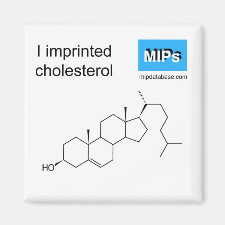
Authors: Alesci A, Cicero N, Salvo A, Palombieri D, Zaccone D, Dugo G, Bruno M, Vadal+á R, Lauriano ER, Pergolizzi S
Article Title: Extracts deriving from olive mill waste water and their effects on the liver of the goldfish Carassius auratus fed with hypercholesterolemic diet.
Publication date: 2014
Journal: Natural Product Research
Volume: 28
Issue: (17)
Page numbers: 1343-1349.
DOI: 10.1080/14786419.2014.903479
Abstract: The present research aims to evaluate the beneficial effects of polyphenols derived from waste water from a olive mill, obtained by non-plastic molecular imprinting device, in a hypercholesterolemic diet on Carassius auratus, commonly known as goldfish that was selected as experimental model. The study was conducted with morphological and histochemical analyses and also the data were supported by immunohistochemical analysis. Results show the beneficial activity of polyphenols with a reduction of the damage in the steatotic group, confirming that they may be suggested in the treatment of diseases by lipid accumulation, and used as any addition in feed for farmed fish, in order to improve the organoleptic and nutritional quality. The beneficial effects of waste oil extract should be suggested in the contexts of research programmes focused on the products to the health system. Furthermore, the olive mill waste water polyphenols free can be used as natural fertilizers
Template and target information: polyphenols
Author keywords: hypercholesterolemia, goldfish, Olea europaea, LIVER, polyphenol, olive mill waste water



Join the Society for Molecular Imprinting

New items RSS feed
Sign-up for e-mail updates:
Choose between receiving an occasional newsletter or more frequent e-mail alerts.
Click here to go to the sign-up page.
Is your name elemental or peptidic? Enter your name and find out by clicking either of the buttons below!
Other products you may like:
 MIPdatabase
MIPdatabase









